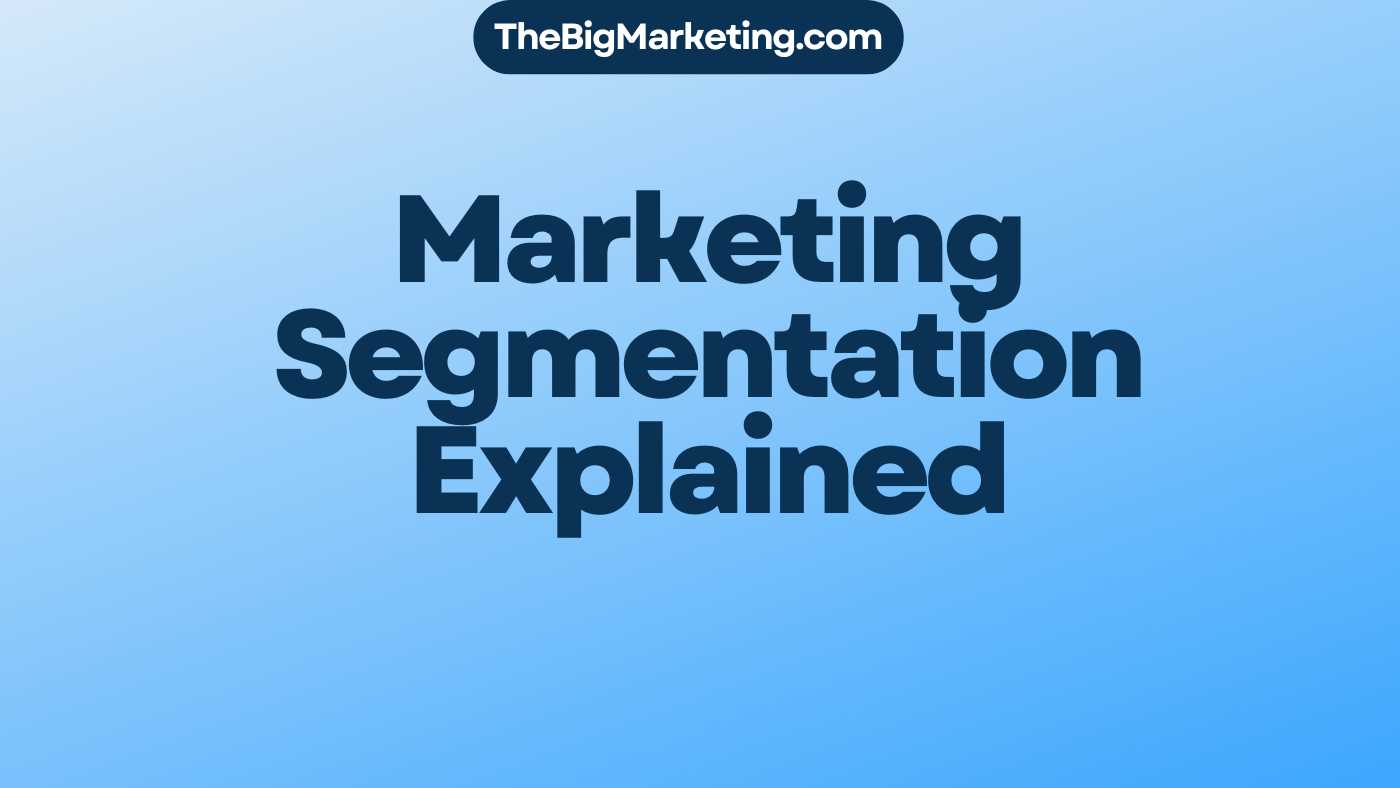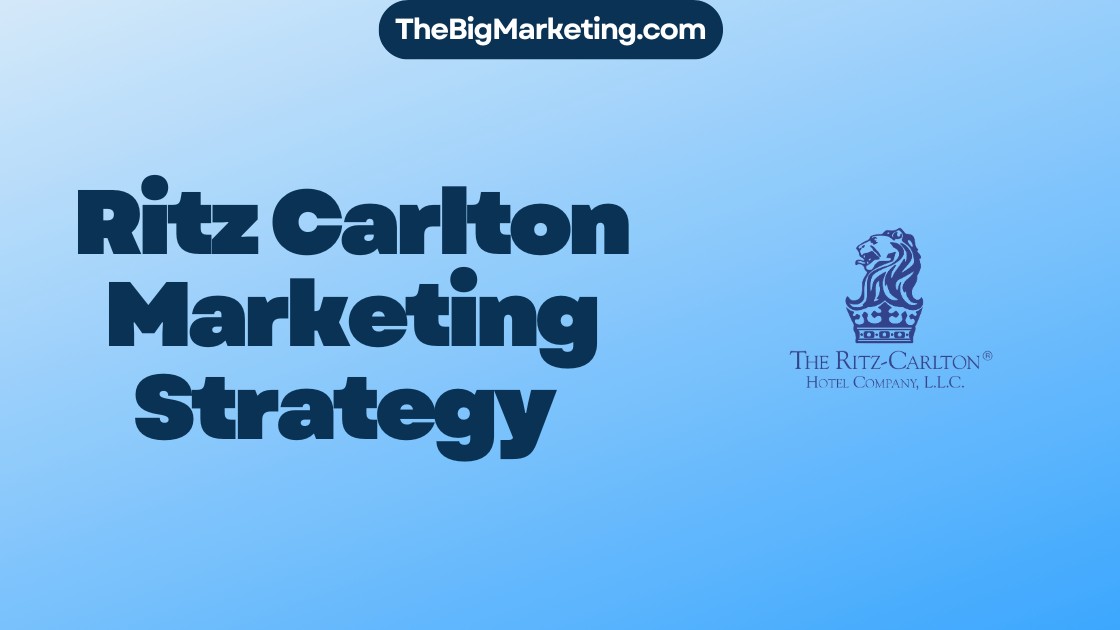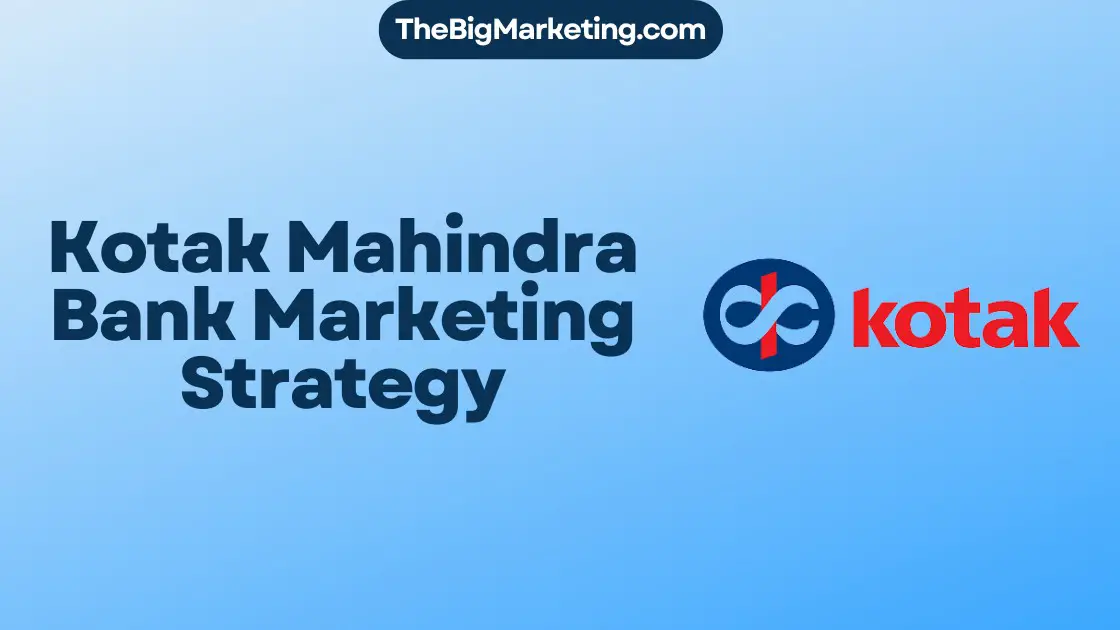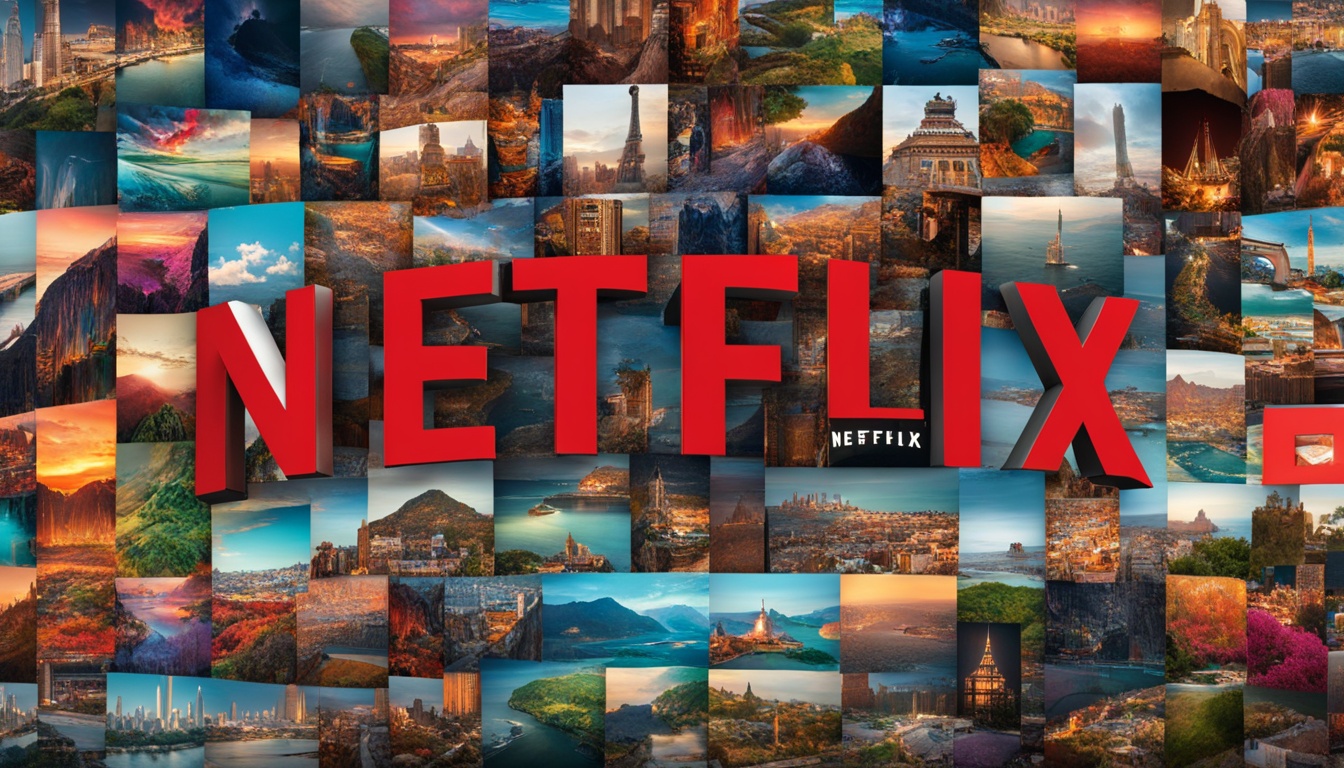Navigating the competitive landscape of marketing communications requires a unique blend of creativity, strategy, and interpersonal skills. When interviewing for a Marketing Communications Coordinator position, candidates must be prepared to showcase not only their technical abilities but also their capacity to think on their feet. The right questions can reveal the depth of a candidate’s experience and their potential to contribute meaningfully to a team’s success.
To assist both interviewers and interviewees in the preparation process, we have compiled a comprehensive list of the top 33 marketing communications coordinator interview questions and answers. This guide aims to provide valuable insights into the expectations for this role and the kinds of challenges candidates might face. Whether you are aiming to secure your dream job or looking to find the perfect addition to your team, these questions and answers will help steer your conversations in the right direction.
Marketing Communications Coordinator Interview Preparation Tips
| Focus Area | Details | Tips |
|---|---|---|
| Understand the Company | Research the company’s history, values, products, and marketing strategies. | Review the company’s website, social media channels, and any recent press releases or news articles. |
| Know the Role | Have a clear understanding of the job description and how it fits into the company’s goals. | Highlight your experiences that align with the job responsibilities and desired skills. |
| Portfolio Presentation | Be prepared to showcase your previous work or projects. | Tailor your portfolio to include relevant work that showcases your skills in marketing communications. |
| Technical Skills | Familiarize yourself with the specific tools and software the role requires. | Practice using tools like Adobe Creative Suite, CRM software, or any other relevant platforms mentioned in the job description. |
| Analytical Skills | Show your ability to analyze and draw insights from data. | Be prepared to discuss how you’ve used data analytics tools or metrics to measure campaign success. |
| Communication Skills | Highlight both your written and verbal communication skills. | Prepare examples of how you’ve successfully communicated in previous roles, including writing samples or presentations. |
| Problem-Solving Abilities | Be ready to discuss how you’ve handled challenges or tight deadlines in the past. | Think of specific instances where you’ve solved a problem or overcame an obstacle in your work. |
| Culture Fit | Understand the company culture and why you’d be a good fit. | Reflect on how your personal values align with the company’s culture and be ready to discuss this. |
Prepare to discuss both your strategic approach to marketing communications and your hands-on experience with the technical tools necessary for the role. This balance will showcase your ability to not only strategize but also execute effective marketing communications campaigns.
1. Can You Tell Me About Your Experience in Marketing Communications?
Tips to Answer:
- Reflect on specific projects or campaigns you’ve worked on that showcase your skills and achievements in marketing communications.
- Mention how you’ve adapted to changes in the industry, highlighting your ability to stay current with trends and technologies.
Sample Answer: In my previous role as a Marketing Communications Specialist, I led a team to develop and implement a digital marketing campaign that resulted in a 25% increase in website traffic over three months. My strategy focused on creating engaging content across various platforms, including social media, email newsletters, and our company blog. I utilized analytics tools to monitor the campaign’s performance, making data-driven adjustments to our approach when necessary. This experience taught me the importance of flexibility, creativity, and strategic planning in achieving successful marketing outcomes.
2. What Do You Think Are The Most Important Skills For A Marketing Communications Coordinator?
Tips to Answer:
- Highlight specific skills such as strategic thinking, creativity, excellent written and verbal communication, and the ability to analyze data for insights.
- Share examples from past experiences that demonstrate how you have effectively used these skills in a real-world marketing context.
Sample Answer: In my view, strategic thinking tops the list because it allows for planning and executing effective campaigns that resonate with the target audience. Creativity follows closely as it differentiates our message in a crowded marketplace. Having strong written and verbal communication skills is crucial for crafting compelling messages and engaging with stakeholders. Lastly, analytical skills are essential for understanding campaign performance and optimizing future strategies. In my previous role, I leveraged these skills to develop a campaign that exceeded KPIs by 40%, showcasing my ability to blend creativity with strategic execution.
3. How Do You Stay Up-To-Date With The Latest Trends And Best Practices In Marketing Communications?
Tips to Answer:
- Subscribe to leading marketing and communications industry blogs, publications, and podcasts to ensure exposure to current trends and discussions.
- Participate in relevant online forums and networking groups, and attend conferences or workshops to engage with peers and thought leaders in the field.
Sample Answer: I make it a priority to stay informed on the latest trends and best practices in marketing communications by regularly subscribing to and reading industry-leading publications such as Ad Age and Marketing Week. Additionally, I actively participate in webinars and attend conferences whenever possible. This not only helps me keep my finger on the pulse of the industry but also provides me with insights and ideas that I can apply to my work. Engaging with a network of marketing professionals through online forums and LinkedIn groups has also been invaluable for exchanging ideas and staying ahead of emerging trends.
4. Can You Describe A Successful Marketing Communications Campaign You Worked On And Your Role In It?
Tips to Answer:
- Highlight your specific contributions to the campaign and how they impacted its success. Focus on strategies you implemented, creativity, teamwork, and the results achieved.
- Use quantitative data to back up your statements. Mention any increases in engagement, sales, or brand awareness that your campaign directly contributed to.
Sample Answer: In my last role, I spearheaded a digital marketing campaign aimed at increasing product awareness among young adults. My role involved devising the content strategy, overseeing the creative process, and managing social media outreach. I collaborated closely with the design team to create visually appealing content and used targeted social media ads to reach our demographic. The campaign resulted in a 40% increase in online engagement within the first month and boosted our sales by 25%. My strategic planning and ability to execute effectively were key to these results.
5. How Do You Prioritize And Manage Multiple Projects And Deadlines?
Tips to Answer:
- Highlight your use of project management tools or methods to organize tasks and deadlines.
- Discuss how you evaluate the importance and urgency of each project to determine your focus.
Sample Answer: In managing multiple projects, I rely on a combination of digital project management tools and traditional lists to keep everything organized. Each morning, I assess my tasks based on urgency and impact, focusing first on what needs immediate attention or has a significant effect on our goals. I communicate regularly with team members and stakeholders to ensure priorities are aligned and adjust my plan as needed to accommodate new information or changes. Time management and flexibility are key to balancing various projects without compromising quality.
6. What Experience Do You Have With Social Media Marketing?
Tips to Answer:
- Highlight specific platforms you have worked with (e.g., Facebook, Instagram, Twitter) and discuss any successful campaigns you’ve managed or contributed to, emphasizing metrics of success such as engagement rates or growth in followers.
- Share your knowledge of social media trends and how you adapt strategies to stay current, showing your ability to learn and evolve in a fast-paced environment.
Sample Answer: In my previous role, I was responsible for managing the company’s Instagram and Twitter accounts. I developed a content calendar that increased our engagement rate by 40% over six months. I consistently researched and implemented new social media trends, such as interactive stories, which helped grow our follower count by 25%. I also worked closely with our content team to create visually appealing and relevant posts that aligned with our brand’s voice and audience interests. My hands-on experience has equipped me with a deep understanding of how to leverage social media platforms to achieve specific marketing goals.
7. How Do You Measure the Success of Marketing Communications Campaigns?
Tips to Answer:
- Highlight your familiarity with key performance indicators (KPIs) specific to marketing communications such as engagement rates, conversion rates, and return on investment (ROI).
- Share an example of how you used data analysis tools or software to track these KPIs and adjust strategies based on the findings.
Sample Answer: In measuring the success of marketing communications campaigns, I focus on specific KPIs like engagement rates, conversion rates, and ROI. For instance, in my last campaign, I utilized Google Analytics and social media analytics to monitor these metrics closely. By analyzing the data, I identified which channels were most effective and adjusted our strategy to double down on those platforms. This approach allowed us to achieve a 20% increase in engagement and a significant boost in conversions, demonstrating the effectiveness of our campaign.
8. Can You Give An Example Of A Time When You Had To Communicate Complex Information To A Non-Technical Audience?
Tips to Answer:
- Use simple language and analogies related to everyday experiences to make complex information more relatable and easier to understand.
- Ensure you gauge the audience’s understanding as you go, asking for feedback and adjusting your explanations as necessary to ensure clarity.
Sample Answer: In my previous role, we developed a new software tool designed to enhance our marketing efforts. I was tasked with presenting this tool to our sales team, who were not familiar with the technical aspects. I started by comparing the software’s functionality to a well-organized library, where you can easily find the book (or in this case, data) you need in no time. I used simple diagrams to represent the software’s workflow and provided real-life scenarios where it could save time and increase efficiency. Throughout the presentation, I paused for questions, ensuring each point was clear before moving on. The session was interactive and ended with the team feeling confident about using the new tool.
9. What Experience Do You Have With Email Marketing And Newsletters?
Tips to Answer:
- Highlight specific campaigns you’ve worked on, focusing on your role, the strategies you employed, and the results achieved.
- Mention any relevant software or tools you are proficient in, such as Mailchimp or Constant Contact, and describe how you’ve used them to segment audiences, automate campaigns, or analyze performance metrics.
Sample Answer: In my previous role, I was responsible for managing our company’s email marketing campaigns and monthly newsletters. I designed and implemented campaigns targeting various segments of our audience, aiming to increase engagement and conversions. Utilizing tools like Mailchimp, I created personalized content, automated email sequences, and conducted A/B testing to optimize open rates and click-through rates. My efforts led to a 20% increase in engagement on our email platform and a significant boost in conversion rates for the campaigns I managed.
10. How Do You Collaborate With Other Teams, Such As Design Or Content, To Create Effective Marketing Materials?
Tips to Answer:
- Highlight specific instances or projects where you successfully collaborated with cross-functional teams, emphasizing the communication tools and strategies you used to ensure alignment and efficiency.
- Discuss how you incorporate feedback from different teams into the final marketing materials, demonstrating your adaptability and commitment to a cohesive project outcome.
Sample Answer: In my previous role, I worked closely with the design and content teams to launch a new product line. We used a combination of weekly sync-up meetings and a shared project management tool to keep everyone updated on progress and changes. I made it a point to understand the capabilities and limitations of each team, ensuring that our requests were realistic and that we respected their expertise. When feedback was given, I acted as the mediator to reconcile different viewpoints, always keeping the project’s goals in mind. This approach not only streamlined our workflow but also resulted in marketing materials that were well-received by our target audience.
11. Can You Describe Your Experience With Event Planning And Promotion?
Tips to Answer:
- Highlight specific events you have planned or promoted, focusing on your role, the strategies you employed, and the outcomes.
- Discuss how you measured the success of these events and what you learned from the experience that has improved your event planning and promotion skills.
Sample Answer: In my previous role, I was responsible for planning and promoting our annual industry conference. My role involved coordinating with vendors, securing speakers, and managing the marketing campaign to ensure we attracted the right attendees. I used a mix of digital marketing, email campaigns, and social media to promote the event, which led to a 20% increase in attendance compared to the previous year. I measured success through attendee feedback, social media engagement, and actual attendance numbers, which all exceeded our targets. This experience taught me the importance of a targeted promotional strategy and meticulous planning in achieving event success.
12. What Do You Think Are The Biggest Challenges Facing Marketing Communications Professionals Today?
Tips to Answer:
- Reflect on the rapid pace of digital transformation and how it affects consumer behavior and expectations.
- Discuss the challenge of standing out in a crowded market and the importance of innovative strategies to capture attention.
Sample Answer: In my view, one of the biggest challenges facing marketing communications professionals today is keeping up with the fast-paced changes in digital technology and how these changes influence consumer behavior. We’re in an era where consumers expect personalized and engaging content at their fingertips. Meeting this demand requires a deep understanding of new tools and platforms, making constant learning essential. Another significant challenge is the saturation of messages in nearly every channel. Cutting through this noise to make a meaningful connection with our audience necessitates creativity, strategic thinking, and a keen understanding of data to tailor messages that resonate on a personal level.
13. How Do You Stay Organized And Ensure That All Marketing Communications Materials Are On-Brand And Consistent?
Tips to Answer:
- Highlight the importance of using project management tools and systems for organizing tasks and timelines to ensure consistency in branding and messaging.
- Discuss the role of regular team meetings and reviews to align on brand guidelines and campaign objectives, ensuring all materials are consistent and on-brand.
Sample Answer: In my experience, staying organized and ensuring all marketing communications materials are on-brand and consistent involves a blend of strategic planning and effective communication. I rely heavily on project management tools like Asana or Trello to track all our projects and deadlines. These tools help me keep a detailed checklist for each campaign, ensuring nothing falls through the cracks and all elements align with our brand guidelines. Additionally, I schedule regular team meetings and review sessions where we collectively go over the content, design aspects, and key messages of our campaigns. This collaborative approach not only fosters team alignment but also guarantees that every piece of communication we put out resonates with our brand’s voice and objectives.
14. Can You Give An Example Of A Time When You Had To Adapt A Marketing Communications Strategy Based On Changing Circumstances Or Feedback?
Tips to Answer:
- Reflect on past experiences where you had to quickly pivot your strategy due to new information or feedback. Highlight your flexibility and problem-solving skills.
- Describe how you used data and feedback to guide your decision-making process, ensuring that your adaptations were strategic and effective in achieving your goals.
Sample Answer: In my last role, we launched a social media campaign that initially garnered less engagement than anticipated. I quickly analyzed the data and feedback from our audience to identify the disconnect. Realizing our message wasn’t resonating, I spearheaded a shift in our content strategy to focus more on storytelling and user-generated content, which our audience found more relatable and engaging. This adaptation not only improved engagement rates but also increased our conversion rates by 15%. It was a clear testament to the importance of being responsive and adaptable in marketing communications.
15. What Experience Do You Have With Media Relations And Press Releases?
Tips to Answer:
- Highlight specific instances where you successfully managed media relations, such as organizing press conferences, crafting press releases that garnered media coverage, or building relationships with journalists.
- Mention any strategies you used to ensure your press releases stood out and how you measured their success in terms of media pickup and impact on your target audience.
Sample Answer: In my previous role, I was responsible for managing our media relations and creating press releases. I organized several press conferences and developed relationships with key journalists in our industry. For each press release, I focused on crafting compelling headlines and concise, informative content that directly addressed our audience’s interests and needs. I utilized tools to track the pickup of our releases and analyzed their effectiveness in increasing our brand visibility. This hands-on experience has honed my ability to communicate effectively with the media and ensure our messages reach the intended audience.
16. How Do You Ensure That Marketing Communications Campaigns Align With Overall Business Objectives?
Tips to Answer:
- Highlight your ability to closely work with different departments to understand business goals and how marketing communications can support those objectives.
- Mention how you use data and feedback to assess the effectiveness of campaigns in meeting business targets and adjust strategies accordingly.
Sample Answer: In my previous role, I ensured our marketing communications campaigns were aligned with our business goals by initiating regular meetings with the sales and product teams to understand their targets and challenges. This collaboration allowed me to tailor our communications strategy to support sales objectives, drive product awareness, and engage our target audience effectively. I relied heavily on analytics to measure the impact of our campaigns against our objectives, making data-driven decisions to refine our approach when necessary. This method not only increased our campaign success rates but also ensured we were consistently contributing to the company’s strategic goals.
17. Can You Describe Your Experience With Content Creation, Such As Blog Posts Or Whitepapers?
Tips to Answer:
- Highlight specific projects you have worked on, including the goals, your role, and the results achieved.
- Mention any metrics or feedback that demonstrate the success of your content, such as increased engagement, higher website traffic, or lead generation.
Sample Answer: In my previous role, I was tasked with developing a content strategy to increase our brand’s visibility. I spearheaded the creation of a series of whitepapers addressing key industry challenges, drawing on extensive research and collaboration with subject matter experts. My involvement ranged from initial concept development to overseeing the design process and promoting the finished product through our channels. This project resulted in a 25% increase in web traffic and significantly boosted our lead generation efforts. I also ran a blog for our company, creating weekly posts that highlighted industry trends, company news, and practical advice for our audience. This effort improved our SEO rankings and fostered a stronger connection with our community.
18. What Do You Think Are The Most Important Metrics To Track For Marketing Communications Campaigns?
Tips to Answer:
- Focus on explaining how specific metrics provide insights into campaign effectiveness, such as engagement rates, conversion rates, and ROI.
- Highlight the importance of aligning metrics with specific goals of the campaign, whether it’s increasing brand awareness, generating leads, or driving sales.
Sample Answer: In my view, the most important metrics to track depend on the goals of the campaign. For instance, if the goal is to enhance brand awareness, I look at engagement rates, including likes, shares, and comments, as they indicate how compelling our content is to the target audience. For lead generation campaigns, conversion rates are my go-to metric, as they show how effectively we’re turning interest into action. Lastly, ROI is crucial for evaluating the financial efficacy of our efforts, ensuring we’re allocating resources wisely and driving value for our company. Tracking these metrics closely allows me to adjust strategies in real-time for maximum impact.
19. How Do You Stay Within Budget When Planning and Executing Marketing Communications Campaigns?
Tips to Answer:
- Highlight your ability to meticulously plan and allocate resources by prioritizing essential aspects of the campaign that contribute most significantly to its goals.
- Share examples of how you’ve creatively maximized a limited budget, such as through negotiating with vendors, utilizing free marketing tools, or leveraging in-house talents and resources.
Sample Answer: In my experience, staying within budget starts with a detailed plan that aligns with our campaign’s key objectives. I begin by identifying the core elements critical to our success and allocate funds accordingly. For instance, I prioritize spending on high-impact areas like content creation and targeted advertising while exploring cost-effective channels for engagement, such as social media and email marketing. I’ve successfully managed budgets by negotiating better rates with vendors, opting for digital over traditional mediums where possible, and leveraging partnerships to co-create content. This approach has allowed me to deliver impactful campaigns without exceeding the allocated budget.
20. Can You Give An Example Of A Time When You Had To Troubleshoot A Problem With A Marketing Communications Campaign?
Tips to Answer:
- Reflect on a specific instance where you identified and solved a significant issue in a campaign, highlighting your problem-solving skills and attention to detail.
- Discuss the steps you took to diagnose the problem, how you came up with a solution, and the impact of your actions on the campaign’s success.
Sample Answer: In my previous role, we launched a digital campaign that initially received lower engagement rates than anticipated. Recognizing this early, I conducted a thorough analysis of our audience targeting parameters and realized we had overlooked a crucial segment of our audience. I promptly adjusted our targeting criteria and restructured the campaign to better align with our audience’s interests and behaviors. This swift action resulted in a significant uptick in engagement and conversions, demonstrating the importance of agility and data-driven decision-making in marketing communications.
21. What Experience Do You Have With Video and Multimedia Content Creation?
Tips to Answer:
- Highlight specific projects or campaigns where you successfully utilized video and multimedia content to achieve marketing goals. Mention the tools and software you are proficient in.
- Discuss the impact of your video and multimedia content, such as increased engagement, higher conversion rates, or improved brand awareness. Use metrics to quantify your achievements when possible.
Sample Answer: In my previous role, I spearheaded a project to create a series of promotional videos for a new product launch. I was involved in the entire process, from storyboarding and scripting to coordinating with the videography team and overseeing the editing process. I used Adobe Premiere Pro and After Effects to add final touches. This campaign resulted in a 40% increase in social media engagement and a 25% uptick in sales within the first month of the launch. My experience in multimedia content creation extends to producing informative webinars, which significantly improved our lead generation efforts.
22. How Do You Ensure That Marketing Communications Materials Are Accessible And Inclusive?
Tips to Answer:
- Highlight your understanding of various accessibility standards and guidelines such as WCAG and ADA.
- Discuss your experience in creating content that is inclusive, considering different cultures, languages, and abilities.
Sample Answer: In my previous roles, I’ve always prioritized ensuring our marketing communications are accessible and inclusive. I start by familiarizing myself with the latest accessibility standards, like WCAG 2.1, and applying these guidelines to all our materials. For instance, I ensure all video content has captions and descriptive audio for those with hearing or visual impairments. I also advocate for the use of inclusive language and imagery that reflects a diverse audience, recognizing the importance of representing various cultures, abilities, and backgrounds in our communications. This approach not only broadens our reach but also strengthens our brand’s reputation as inclusive and attentive to all customers’ needs.
23. Can You Describe Your Experience With A/B Testing And Optimization Of Marketing Communications Campaigns?
Tips to Answer:
- Share specific examples of A/B tests you have conducted, including what variables you tested (e.g., email subject lines, landing page designs) and the impact on campaign performance.
- Highlight your analytical skills by discussing how you interpreted the results and applied learnings to future campaigns for improved results.
Sample Answer: In my last role, I was responsible for enhancing the performance of our email marketing campaigns. I initiated an A/B testing strategy to optimize the subject lines and call-to-action phrases. For one campaign, we tested two different subject lines. Variant A significantly increased open rates by 15% compared to Variant B. I analyzed the campaign data using analytics tools, which allowed me to understand why Variant A performed better. This insight led me to adjust our email marketing strategy, adopting a more personalized approach in our subject lines, which consistently improved our engagement rates across subsequent campaigns.
24. What Do You Think Are The Most Important Ethical Considerations For Marketing Communications Professionals?
Tips to Answer:
- Reflect on the importance of transparency and honesty in all marketing communications, ensuring that messages are not misleading or deceptive.
- Emphasize the need to respect privacy and obtain consent before using consumer data, adhering to regulations like GDPR.
Sample Answer: In my view, the most critical ethical considerations for professionals in our field revolve around honesty and respect for privacy. It’s vital that the campaigns we create and the messages we convey are truthful and not misleading to the public. This means having a clear understanding of the product or service and presenting it in a way that accurately represents its features and benefits. Additionally, with the increasing importance of data in marketing, ensuring that we have consent to use consumer data and respecting individuals’ privacy becomes paramount. It’s about building trust with our audience, which is foundational to any successful marketing strategy.
25. How Do You Stay Motivated and Engaged in Your Work as a Marketing Communications Coordinator?
Tips to Answer:
- Reflect on personal goals and how they align with the company’s mission to illustrate a deep connection to the work.
- Mention specific strategies like setting short-term objectives, seeking feedback, and embracing continuous learning to show a proactive approach to maintaining motivation and engagement.
Sample Answer: In my role as a Marketing Communications Coordinator, I stay motivated by aligning my personal growth goals with the mission of the company. Understanding the impact of my work on our audience keeps me driven. I set personal milestones alongside project deadlines to give myself clear targets and a sense of achievement. Regular feedback from my team and managers helps me adjust and improve. I keep engaged by continuously seeking out new learning opportunities, whether through industry webinars, workshops, or conferences, to ensure my skills are up-to-date and to bring fresh ideas to our campaigns.
26. Can You Give An Example Of A Time When You Had To Present Marketing Communications Results To Senior Leadership?
Tips to Answer:
- Ensure you highlight the key metrics and outcomes from the marketing communications campaign to demonstrate its impact.
- Reflect on how you prepared for the presentation, focusing on the clarity and conciseness of the information, and how you anticipated and addressed senior leadership’s concerns or questions.
Sample Answer: In my previous role, I was tasked with presenting the results of a major marketing campaign to our senior leadership team. I began by gathering all relevant data, including engagement rates, conversion metrics, and return on investment. Knowing that our leadership valued succinct and impactful presentations, I distilled the information into key points that directly linked our efforts to business growth and customer engagement improvements. I prepared a clear, visually engaging presentation that outlined our objectives, strategy, and the tangible outcomes of the campaign. During the presentation, I focused on how our strategic choices led to a significant increase in brand awareness and a notable boost in sales during the campaign period. I also shared customer feedback highlights to provide insight into the campaign’s reception.
Anticipating their questions, I included a section on lessons learned and potential areas for optimization. The presentation was well-received, with leadership expressing appreciation for the insights into customer behavior and the clear demonstration of the campaign’s success. This experience not only bolstered my confidence in communicating complex results but also underscored the importance of aligning marketing efforts with business objectives.
27. What Experience Do You Have With Marketing Automation Tools And Platforms?
Tips to Answer:
- Mention specific marketing automation tools and platforms you have used, highlighting any certifications or special training you have completed.
- Share examples of how you have successfully used these tools to improve marketing campaigns, enhance customer engagement, or increase efficiency.
Sample Answer: In my previous role, I extensively used HubSpot and Salesforce for various marketing campaigns. I am certified in both platforms, which allows me to leverage their full capabilities. For instance, I implemented a series of automated email campaigns via HubSpot that resulted in a 25% increase in lead generation over six months. Additionally, I utilized Salesforce to track and analyze customer interactions, enabling us to tailor our marketing strategies more effectively and achieve a higher ROI. My experience with these tools has equipped me to streamline processes and achieve significant marketing results efficiently.
28. How Do You Approach Problem-Solving When Faced with a Complex Marketing Communications Challenge?
Tips to Answer:
- Highlight your structured approach to problem-solving, emphasizing steps like analysis, brainstorming, and evaluation.
- Provide specific examples from your past experience where you successfully tackled similar challenges, detailing your thought process and actions.
Sample Answer: When faced with a complex marketing communications challenge, I start by thoroughly analyzing the situation to understand all aspects of the problem. This involves gathering data, identifying key issues, and understanding the target audience. Next, I brainstorm potential solutions with my team, considering both conventional and creative strategies. Once we have a list of viable options, I evaluate each one based on feasibility, potential impact, and alignment with our goals. For instance, in my previous role, we faced declining engagement in our social media campaigns. I led the team in analyzing our current strategy, pinpointed areas for improvement, and tested new content formats. Through careful planning and execution, we significantly increased our engagement rates. This structured approach ensures that we address the root cause of the problem and implement effective solutions.
29. Can You Describe Your Experience With Influencer Marketing And Partnerships?
Tips to Answer:
- Share specific examples of influencer marketing campaigns or partnerships you have been involved in, including the goals, execution, and outcomes.
- Emphasize your ability to identify and collaborate with influencers whose audience aligns with the brand’s target market, highlighting any innovative strategies you used to engage them.
Sample Answer: In my previous role, I spearheaded an influencer marketing campaign aimed at increasing brand awareness among young adults. I began by researching and identifying key influencers within our target demographic who shared our brand’s values. After selecting the most aligned influencers, I reached out and formed partnerships where they would create content that showcased our products in a natural and engaging way. This not only involved negotiations on content deliverables but also ensuring their audience engagement metrics aligned with our goals. The campaign resulted in a 20% uplift in brand engagement on social media and a significant increase in website traffic during the campaign period. This experience taught me the importance of authenticity in influencer partnerships and the power of leveraging shared values to connect with broader audiences.
30. What Do You Think Are The Most Important Qualities For A Successful Marketing Communications Coordinator?
Tips to Answer:
- Highlight your ability to adapt quickly to changes in the market and communication trends, emphasizing real-world examples where you successfully navigated these shifts.
- Discuss your strong collaboration skills, sharing how you’ve effectively worked with cross-functional teams to create cohesive and successful marketing campaigns.
Sample Answer: In my view, adaptability and collaboration stand out as key qualities for success in this role. Being able to pivot strategies in response to market trends has been crucial in my career. For instance, when social media algorithms change, I’ve quickly adjusted content strategies to maintain engagement levels. Similarly, working closely with design and content teams has been essential. By fostering open communication and understanding each team’s strengths, we’ve launched campaigns that effectively resonate with our target audience while staying true to our brand’s voice.
31. How Do You Stay Current With Changes in Data Privacy Regulations and Their Impact on Marketing Communications?
Tips to Answer:
- Stay proactive by subscribing to industry newsletters, participating in relevant webinars, and joining professional groups focused on data privacy and marketing.
- Implement a regular review process in your team to assess the impact of new regulations on your marketing strategies and adjust accordingly.
Sample Answer: I make it a priority to stay ahead by subscribing to key industry newsletters like the International Association of Privacy Professionals and participating in forums and webinars. This approach keeps me informed about the latest trends and changes in data privacy laws. I also schedule monthly meetings with my team to review any upcoming regulations that might affect our campaigns. By doing so, I ensure we adapt our strategies proactively, always keeping compliance and ethical considerations at the forefront of our marketing efforts.
32. Can You Give An Example Of A Time When You Had To Navigate A Crisis Or Negative Publicity Situation?
Tips to Answer:
- Prepare by outlining a specific instance where you effectively managed a crisis, highlighting your proactive steps and communication strategy.
- Emphasize your ability to stay calm under pressure, think critically, and use strategic communication to mitigate the situation.
Sample Answer: In my previous role, we faced a product recall that risked tarnishing our brand’s reputation. I immediately convened a cross-functional team to assess the situation and develop a communication plan. Recognizing the urgency, I crafted transparent and empathetic messages for our customers, explaining the recall’s reasons, how customers could return the product, and the steps we were taking to ensure this issue wouldn’t recur. I also engaged with the media to control the narrative, emphasizing our commitment to safety and quality. Through this approach, we managed to maintain customer trust and minimize negative press.
33. What Are Your Long-Term Career Goals In Marketing Communications?
Tips to Answer:
- Reflect on how your current skills and experiences align with your future aspirations in the field of marketing communications.
- Express your commitment to continuous learning and growth, highlighting your eagerness to embrace future trends and technologies.
Sample Answer: In the long run, I aim to evolve into a role where I can lead innovative marketing communications strategies that significantly impact the business landscape. My journey so far has equipped me with a robust foundation in crafting compelling narratives and leveraging various media channels to amplify brand messages. As technology and consumer behaviors evolve, I’m committed to staying at the forefront of these changes, ensuring that my strategies remain effective and relevant. Ultimately, I see myself guiding a creative team, fostering a culture of innovation and excellence in all our marketing communications endeavors.
Conclusion
Preparing for an interview as a Marketing Communications Coordinator requires a thorough understanding of both the theoretical and practical aspects of marketing communications. The top 33 questions and answers discussed above are designed to give you a comprehensive overview of what potential employers might expect from you. By familiarizing yourself with these questions, practicing your responses, and tailoring them to reflect your unique experiences and skills, you can approach your interview with confidence. Remember, a successful interview is not just about providing the right answers but also demonstrating your passion for marketing communications, your ability to think critically, and your readiness to contribute to the team’s success. Good luck!







